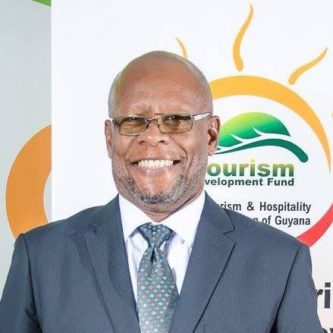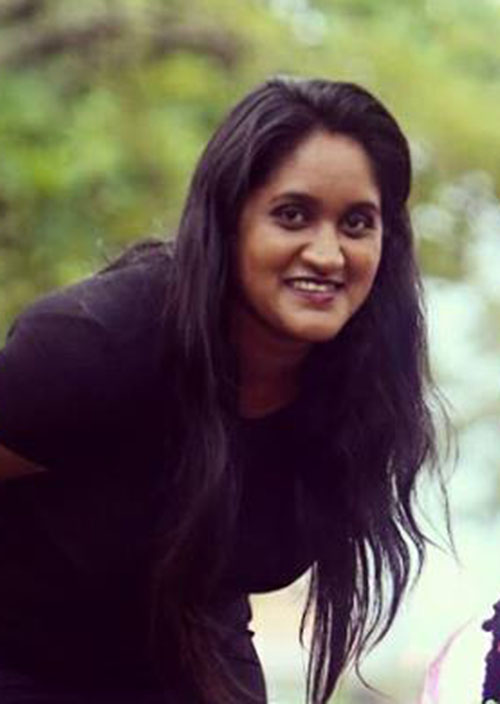With President David Granger facing criticism over his lack of meaningful engagement with the media, several veteran journalists say a continued lobby is needed to ensure there is accountability.
President Granger has held two press conferences since taking office in May, 2015 and the journalists canvassed by Sunday Stabroek indicated that presidential press conferences are a traditional feature of the Guyanese media landscape that should not be underestimated or undermined.
“We need a President who is brave enough to face a pool of journalists at a press conference,” longstanding journalist and Kaieteur News editor Adam Harris said.
This position is supported by the current President of the Guyana Press Association (GPA) Nazima Raghubir, who told Sunday Stabroek that engagements with the press should be a feature for anyone who holds public office.
“I have said ad nauseam that this is not about any individual or group of people but about the people’s business and right to be informed about national issues. The press represents a large section of citizens who do not get the opportunity to pose questions to officials. There are many outstanding issues of national interest that should be given the adequate attention and clarification. Two press conferences [since] 2015 is really unacceptable and side line interviews are cosmetic at most to address anything,” she explained.
She further noted that the GPA has raised the need for more frequent engagements with the Head of State since he assumed office in 2015.
“We raised it again when at the President’s media brunch and as recent as World Press Freedom Day. The lack of engagement does no good to any government’s role to provide accountability and transparency. The Guyana press cannot continue to meet the President at the sidelines of events. We have already had to deal with limited access during the Public Interest programme. The media does not expect to be treated specially, but the lack of regular sustained engagement with the press is unacceptable. The president once published a magazine and should know the importance of getting factual statements or the need to have official responses to issues,” Raghubir noted
‘Not good enough’
According to Harris, the reasons President Granger has so far given for not holding press conferences are “not good enough.”
“He can’t use that excuse that he’s more out [of the country] than in so he can’t hold press conferences. That is not true. Heads of State have used the nighttime for press conferences. Burnham called press conferences at eight in the night, while Jagdeo called press conferences at four in the afternoon. Granger can’t say he’s so busy that he can’t hold a press conference a quarter,” he stressed.
Harris, like Raghubir and several other journalists, noted that given Granger’s background as a publisher, he should know how important the engagements are. “He was not a practicing journalist but he was in media as an editor, so he knows how important it is to receive information. Now that he is in this position, he should provide the information. I don’t know that any Head of State loves to face the media but if they have to they do. I believe this Head of State should face the media every quarter because a lot of things happen during that time. There are decisions, promises with timelines and we should be updated so we can inform the people,” he explained.
Harris also noted that several members of government often claim that they are misquoted after granting interviews with individual media houses and this can be remedied by regular press conferences which would see information well-documented as a guard against being misquoted.
President Granger has indicated that he is open to meeting with individual media houses but Harris has stressed that each media house has different issues they wish to address and the President needs to be brave enough to face the entire pool.

Chief Editor of News Source Guyana Gordon Moseley is similarly critical of the President’s media engagements but he believes journalists should not shun the opportunity for an individual interview whenever it presents itself.
“Just get the story,” he advised, although he added that the sidebar interviews which have become a feature of the Granger administration are not enough.
“While he would make himself available for those sidebar interviews at events, they are usually limited and most times appear rushed. I still think there is the need for more formal engagements and journalists too ought to be more prepared for these interfaces. What you find happening is that there is a handful of reporters who do the asking and grilling and who would have done their homework on the issues. We have got to ensure we are informed before we inform. But we need more information too,” Moseley, who is a former GPA President stressed.
The President’s brief interactions with the media on the sidelines of events came in for criticisms from every journalist contacted. According to Denis Chabrol, another former GPA President and a member of the body’s current executive, the less than 10-minute stand-up interviews are woefully insufficient to acquire details outside of skeletal responses.
Another veteran, Bert Wilkinson, has advised President Granger to acknowledge that there “no harm in sitting with the press once monthly or every two months.”
“It is traditional for all presidents to hold regular press conferences but this one appears unorthodox. Maybe because the media accosts him everywhere he goes and he does regular stand-up interviews with the media he feels it’s not necessary but there is no harm in sitting with the press to explain policy,” he elaborated.
‘The challenge’
Meanwhile, veteran broadcaster Enrico Woolford has a more philosophical view of the issue.
According him, in the world of new media presidential press conferences are more a custom than a need but Guyanese expect it.

The President, he advised, should set a schedule of monthly, bi-monthly or quarterly press conferences and stick to it. “It doesn’t matter the number. What matters is that the schedule is kept,” he explained, while adding that journalist have also got to start thinking more about function than form.
“The challenge is that the way the media engage with the President has changed over the last couple of years because the President and other leaders have so many other platforms they can use. The days of a leader having to have a press conference are no more. Years ago, you had radio, television and print and those persons had to go to an area to listen to someone deliver something. New media lets them be anywhere. Now they can send a Tweet or even do a Facebook live with the President while he is out of the jurisdiction. What is important is the interaction and the press is looking for more and more interaction,” Woolford observed.
He stressed that journalists just want information since they believe the more information they have, the more they can provide to the electorate and that an informed electorate will make informed decisions.
However, in the current milieu where there are different platforms which meet different niche markets, he said leaders may feel that they are able to target their constituents and the electorate in general without the media but nevertheless the media needs to be engaged.
“One has to ask one’s self whether the press conference is as useful a tool as regular interactions with the media, whether on daily basis or weekly basis,” Woolford posited.
He, however, noted that the same complaint raised about the sideline interview is one he has about press conferences.
“Two or three persons often dominate press conferences and I have been embarrassed in recent times to observe press conferences where no one asks questions,” Woolford lamented as he questioned whether local journalists are really as energetic as they need to be to deal with new media interactions.
“Don’t allow yourself to be swayed by form over function,” he advised.
Keep lobbying
In the interim, the journalists have advised their colleagues to maintain the lobby and be united in their efforts. “The media has to keep up the lobby. The same thing is happening in Jamaica in relation to post-Cabinet press briefings and their lobbying seems to be bearing fruit,” Wilkinson indicated, while Moseley advised that the matter should be raised at every government press conference.
“Keep pressing the issue and raise it more at other government press conferences. I tried doing that at the Harmon pressers then I realised I was the only one asking about that…so there is that other issue about being united…but journalists need to continue doing their work…keep pressing the issues and keep asking questions,” Moseley said.
According to Raghubir, there is no other option. “We got to keep asking. We are part of the accountability process and we have a job to do,” she stressed.
Chabrol has also noted that the local lobby must be supported by an external lobby, which includes regional and international bodies concerned with press freedom and media environment.






